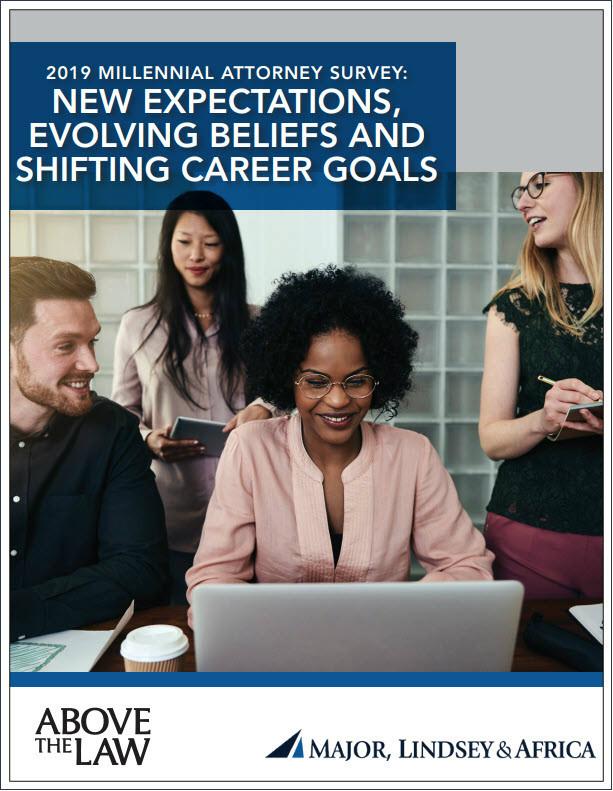 Every year, a new crop of graduates enter the real world and start their student loan repayments. Unfortunately, many will not pay them off for a very long time or will be forced to stay on an income-based repayment plan until the loans are forgiven.
Every year, a new crop of graduates enter the real world and start their student loan repayments. Unfortunately, many will not pay them off for a very long time or will be forced to stay on an income-based repayment plan until the loans are forgiven.
Many of those who are on the path to paying them off within a reasonable time have high-paying jobs, family support, dumb luck, or all of the above. While some are able to pay off their student loans without the help of a Biglaw job, these stories are few and far between.
Today, I want to share an interview I had with a solo tax attorney who was able to pay off his student loans from undergrad, law school, and a tax LL.M. degree within seven years even though he did not anticipate being a solo for long. This interview will be divided into two parts.
When did you finish school and how much did you owe then?
I finished school in 2008 and I think I owed about $150,000. My federal loans were consolidated at 2% while my private loans were on a variable interest rate which were between 4-7%.
Which schools did you attend?
I went to a relatively low-ranked law school. Then I got a Tax LL.M. at one of the schools on this list.
Where did you work when you first graduated?
I did very well academically at my Tax LL.M. program, so I thought I had a shot at a major law or accounting firm. But I graduated just at the start of the recession. And firms are still picky about where you went to undergrad and law school.
I ended up working for a solo practitioner where the primary clients were small businesses and individuals. The firm was focused on tax litigation and tax dispute resolution. It’s not the job I had in mind when I graduated, but I learned a lot of useful skills.
What was your debt repayment plan when you first graduated?
My salary at the solo firm was about $4,500 per month after taxes and health insurance. My monthly student loan payment was $1,200 and about half of it went to interest. Thankfully, I didn’t have a lot of fixed costs other than a $500 per month car payment. I lived with my parents and didn’t go out often.
I didn’t have much of a repayment plan or any kind of budget back then, but I had two major goals.
My first major goal was to pay a year in advance so I can last through an unexpected downturn without ruining my credit or getting calls from collection agencies. I did not set up a retirement account. I thought that I would get a better return on the future interest I won’t have to pay in the future.
My second major goal was to pay off a $15,000 private loan that my cousin very reluctantly co-signed for me. I had a feeling that if I defaulted, it would ruin our relationship. Once I got my one-year prepayment done, I could focus my extra income on paying that off.
How did you go into solo practice?
The job with the solo practitioner only lasted for half a year before I was laid off. I worked for a few small firms on a temporary basis before finding another job with a very shady firm. The pay was awful and it wasn’t worth the stress — both from the management and from the clients. When you are new, you don’t recognize a shady firm until you are waist deep in their B.S.
I somehow managed to stay there for a year and a half before quitting. I set up an impromptu solo practice. It wasn’t supposed to be permanent. I was hoping to get some clients here and there to pay the bills while looking for a new job and figuring out what I’m going to do with my life.
Since I wasn’t planning to make my solo gig permanent, my expenses were deliberately low. I did not spend money on advertising or expensive office space and legal research tools. All I did was make a few business cards that had my cell phone number. A few months later, a former client from my old firm reconnected with me. She was a small-business owner and we made an arrangement where I would help her with her tax affairs and I could use her office to receive mail.
How did you deal with your student loan payments when solo practice income is unpredictable?
I guess you can say I made unpredictable payments. I focused on the first major goal as mentioned above — one year prepayment. This became crucial for slow months. When I had a good month, most of my revenue went to the loans, with some going to savings and taxes. When I had a bad month, I paid at least the accrued interest.
So when was the moment you decided to pay off the debt as soon as possible?
Around 2010, Congress passed FATCA and the IRS started cracking down on Americans who were hiding money in foreign bank accounts, particularly in Switzerland. But this also affected people who simply shared bank accounts with overseas family members who now had to comply with foreign account disclosure requirements. I got paid well from helping these people get into compliance and out of the IRS’s criminal crosshairs. Also, my practice improved in general financially.
So with the money I made from those clients, I was tempted to buy a few nice things like a car or a nice vacation. But I remembered my second major goal — paying off the loan that my cousin co-signed.
After reviewing all of the options and the pros and cons of each, I decided to pay off the loan. I really wasn’t that excited about a vacation. Most of my friends couldn’t join me anyway. Also, I could buy nice things, but in a few months, they wouldn’t be so nice anymore. Finally, I was worried that my cousin would resent me if he were to see me driving a fancy car while he is on the hook for my nondischargeable student loans.
Once that loan was paid off, my overall loan balance went down significantly and was under $90,000. This had other benefits. The daily interest accrual was a lot lower than it was previously. Before paying this loan off, my monthly payments were only chipping at the principal because a big part of my payment was applied to interest. Now most of my payments are being applied to principal. Also my debt-to-income ratio was reduced which made me look more trustworthy to banks in case I needed a mortgage or a line of credit.
It just seemed like the best time to pay off the private loans as soon as possible. The variable interest rates were very low at 4% and I saw it as an opportunity to pay down the principal before the interest rate went back up.
So I went beyond the one-year prepayment goal and most of the money I made went to paying the loans. In the summer of 2013, I paid off my $100,000 private loan. My federal loan is at a fixed 2% rate and the balance is now about $45,000. I am at least one year prepaid and I pay $320 per month which is slightly over the monthly minimum.
So you didn’t pay off your student loans.
Well, technically no. But in 2015, I saved enough money to pay it off and I could transfer the funds right now if I wanted to. I see it as a 2% line of credit.
What was your average annual income in those days?
In my first full calendar year of solo practice, I think I made around $20,000 after expenses. And as the years progressed, the income increased slowly but surely. In 2013, I grossed just under $100,000 and netted around $40,000 after taxes.
Next week, I will continue the interview covering the sacrifices made to pay off the loan, thoughts on student loan reform, and tips to on repaying the loan faster.
Shannon Achimalbe was a former solo practitioner for five years before deciding to sell out and get back on the corporate ladder. Shannon can be reached by email at sachimalbe@excite.com and via Twitter: @ShanonAchimalbe.















 Get a better starting point with attorney created legal documents, checklists, guides and more. »
Get a better starting point with attorney created legal documents, checklists, guides and more. » Gain a clear strategic advantage with the fastest answers and most valuable insights. »
Gain a clear strategic advantage with the fastest answers and most valuable insights. » Simplify your matter management, client communication and financial reporting in one seamless tool. »
Simplify your matter management, client communication and financial reporting in one seamless tool. »